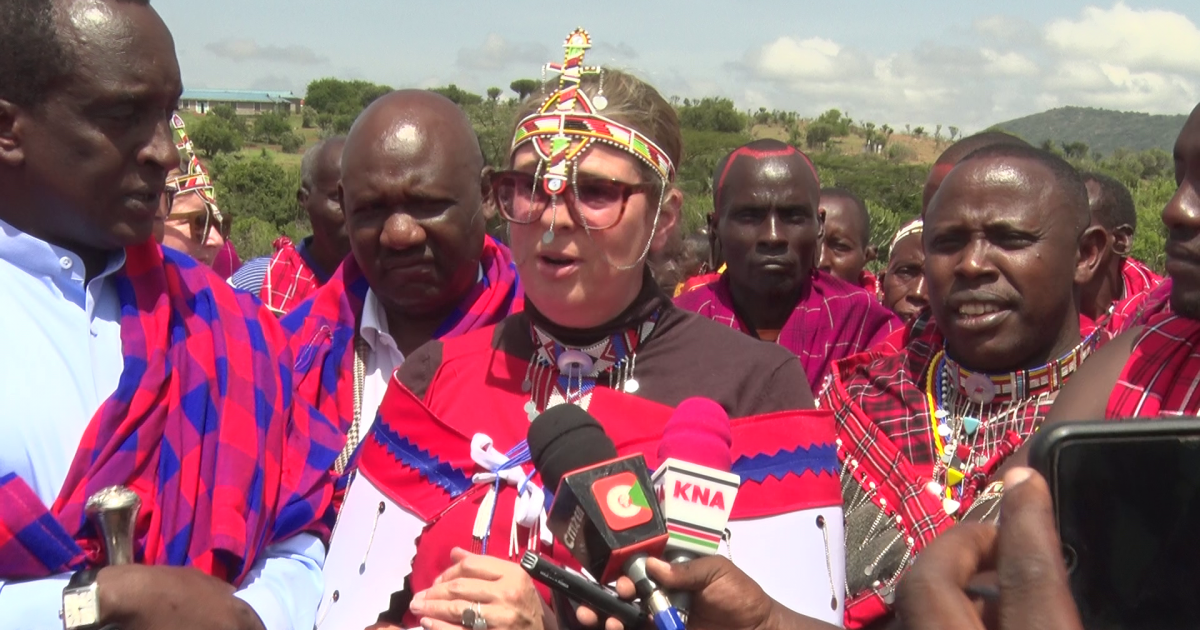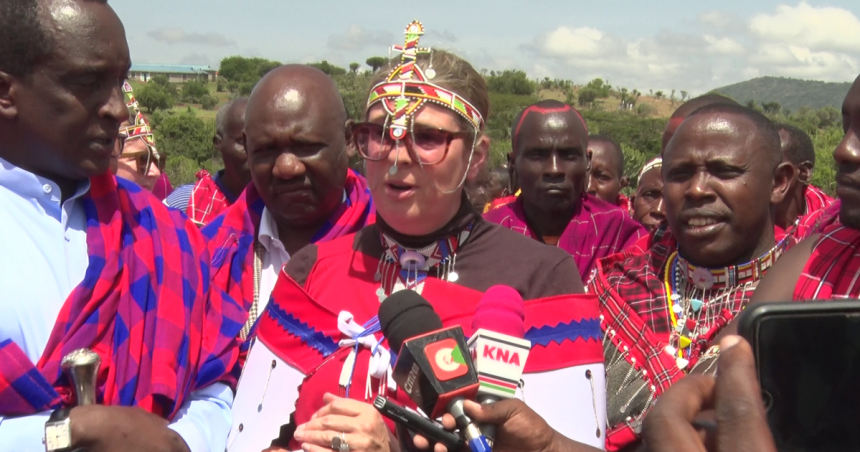It was joy and ululation as two families from the Loita clan of the Maasai in Narok South received a total of 98 cows from Oxford University for ‘stolen’ cultural artefacts.
The artefacts have been on display at Pitt Rivers Museum for 138 years and are believed to have been smuggled to England during colonial times.
The discovery was made by a local scholar, Mr Samuel Sankiriaki, who had toured the museum.
Speaking during the ‘Inkirro’ cleansing ceremony at Loita over the weekend, Mr Sankiriaki said he was astonished to see the artefacts.
“I was at the museum in 2017 and I was shocked to discover some Maasai artefacts and from their captions, they indicated where they were from. I questioned how they found themselves there,” said Mr Sankiriaki.
He said the artefacts had been used commercially for the past century while the owners languished in poverty.

The artefacts include Enkononkoi (men’s necklace) worn by elders, Emonyorit (women’s necklace), Isikira (headgear for girl initiates) and Isutia (special necklace).
He said there were 100 Maasai artefacts but the five were the most ‘sensitive’.
University of Oxford officials led by Prof Laura Van Broekhoven, the Director of Museum Studies, acknowledged that the institution has 148 artefacts from the Maasai community which were acquired during colonial era but five of them were wrongly taken there.
“When Mr Sankiriaki visited our museum and saw the items, he fumed. He asked us why such objects were there and that’s when we realised that they had a special attachment to the community,” said Prof Broekhoven.
She said a majority of the artefacts were gifts.
Prof Broekhoven said the items were identified to have originated from Loita and the families identified by community foreteller Laibon ole Mokombo.
The artefacts were identified to belong to Sululu and Mpaima families and they each received 49 heifers as a sign of peace and reconciliation.
“We have already started talks with the affected families because we did not have much information about the items,”said Prof Broekhoven.
The items are still on display at the Pitt Rivers Museum and its up to the community to decide whether to bring them back or remain there and get compensation.
The cleansing ceremony that started early in the morning involved the Oxford University representatives driving the cattle across the river before handing them over to the two families.
Mr Seka ole Sululu, a spokesperson for the affected families, welcomed the gesture.
“We have started peace with them (Oxford University). We could have chosen to sue but we chose the traditional way as we believe in reconciliation,” he said.
Mr Sululu said the families are, however, still expecting adequate compensation.
Local leaders led by Governor Patrick Ntutu, former governor Samuel Tunai and MPs Kitilai Ntutu (Narok South), Rebecca Tonkei (Woman Rep) and Johana Ng’eno (Emurua Dikirr) are pushing for the university to establish a campus in the area.
“We believe the owners were either killed or maimed before the ornaments were taken away from them,” said Governor Ntutu.
Ms Tonkei urged the university to offer full scholarships to bright students from Loita.
Mr Amos Leuka,a local scholar who is a member of the Pan-African Living Culture Alliance, said smuggling of artefacts belonging to indigenous communities is part of colonial atrocities that should be addressed.
“Our culture is alive. Such artefacts are of great significance to this community. The records are not clear and we wonder how they were acquired,” said Mr Leuka.
He said the items were either stolen, owners were killed or they were taken by force.



